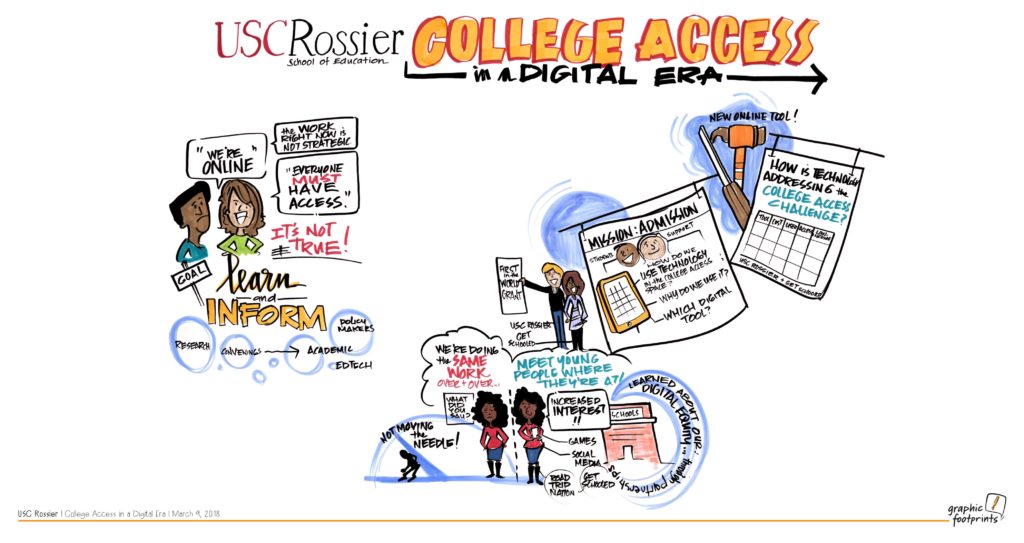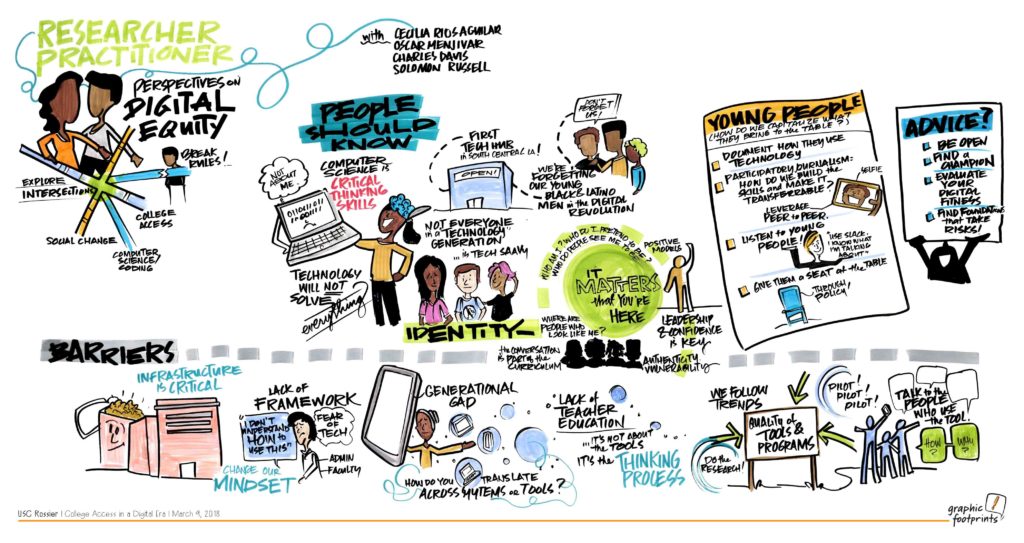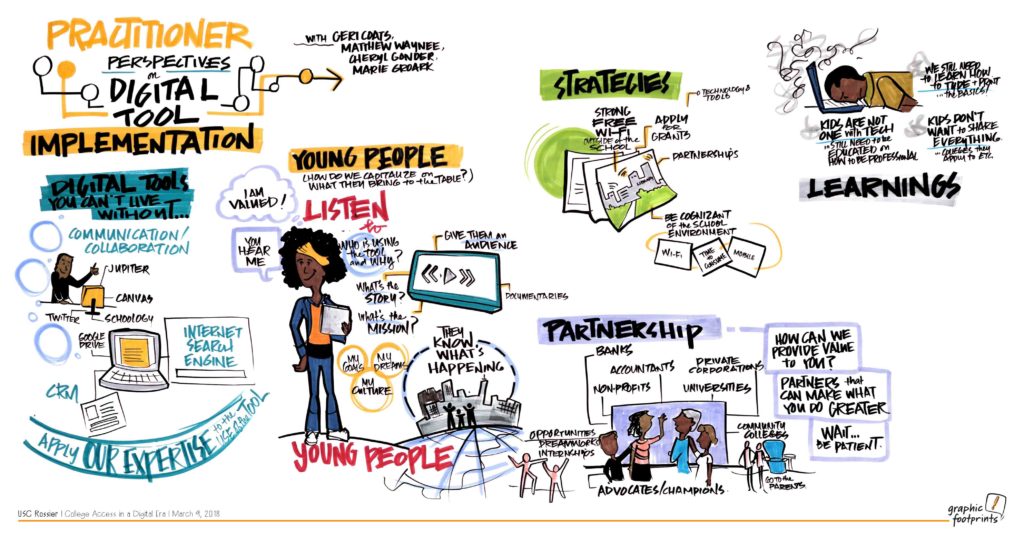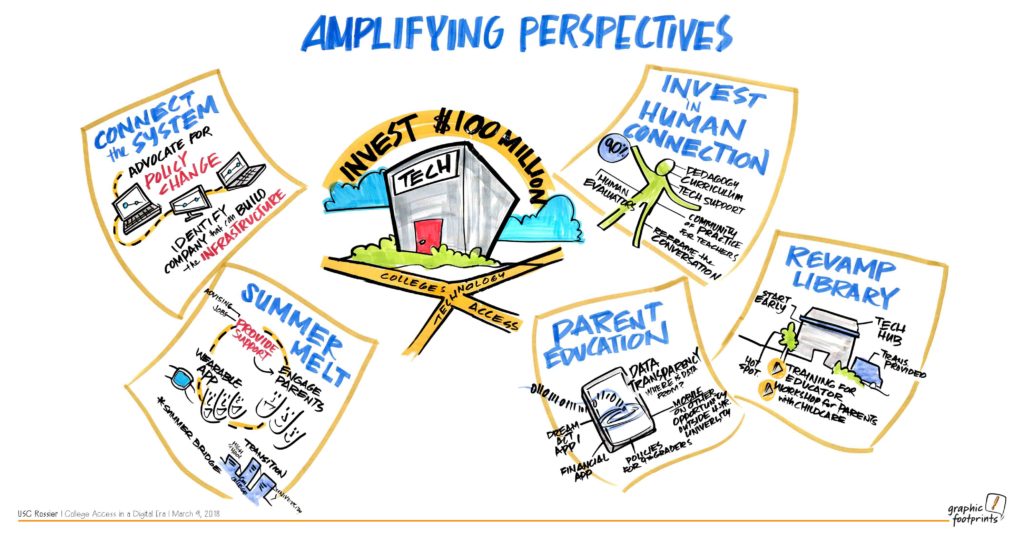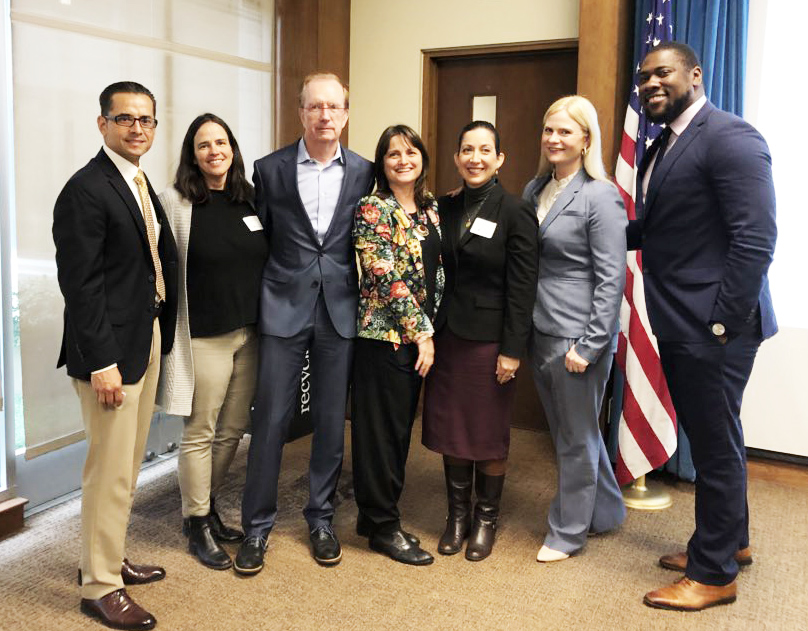
Can better data improve college access and opportunity?
Graduation rates, FAFSA completion rates, college admissions rates. Student success is often measured in hard numbers, yet many of these numbers bring up more questions than answers. Which intervention programs are effective at getting students to apply for financial aid or college admissions on time? How are high school graduation rates related to students’ perceived access to higher education opportunities?
To shed light on some of these questions for California policymakers, researchers at USC’s Pullias Center for Higher Education — along with partners at California Student Aid Commission and The Campaign for College Opportunity — conducted a briefing for state legislators in the Governor’s Council Room at the California State Capitol. Called “Capitol Conversations on College Opportunity & Student Success,” the April 6 event sought to explain the state’s data landscape with regards to college-going metrics and provide a vision for how data might be used as a tool for creating college pathways.
College-readiness data can be used to improve college-going outcomes for students — especially first-generation or low-income students. Yet in the current educational landscape, this data is often underreported, misreported, or misinterpreted.
“We’re missing opportunities for data collection in K-12 schools,” explained Samantha Bernstein-Sierra, postdoctoral research associate at the Pullias Center. “This might mean inconsistencies across districts and even schools in the data they collect from students, or relying on informal conversations with teachers to collect info on FAFSA, college enrollment, summer plans, A-G requirements; or lack of communication between K-12 schools and local higher education institutions. These missed opportunities might have serious implications for students, with potential for inequitable outcomes by race and gender.”
The briefing highlighted these missed opportunities — and suggested steps for closing the data gaps in the future. Sacramento City Unified School District Superintendent Jorge A. Aguilar, for example, spoke about using data to ensure accountability, with equity, access, and social justice as the guiding principles for creating an intersegmental data system. Other featured speakers from the academic, policy, and advocacy sectors shared their extensive knowledge of the educational data gaps that currently prevent researchers, school practitioners, state agencies, and policymakers from meeting the needs of students from across the state.
For the Pullias Center researchers, the impetus for this briefing came as a result of the work of the Center’s Digital Equity in Education team, which developed game-based tools to promote college-going behaviors for high school juniors and seniors. The researchers, in the process of measuring the impacts these tools had on students, found that basic data such as college application rates were often not accurately collected by high schools.
“Without participation and buy-in from a wide range of stakeholders — K-12 schools and districts, postsecondary institutions, and government agencies — and without systemic measures for ensuring data security and accountability for reporting, schools run the risk of not adequately supporting students in their pursuit of postsecondary education,” Pullias researchers explained in a policy briefing distributed to the attendees.
Still, the Digital Equity in Education team remains optimistic about the future of using data to inform college access work. “The event highlights our successful collaboration with the California Student Aid Commission, a state-sponsored entity; Get Schooled, a non-profit with national reach, and Jorge Aguilar’s team,” said Zoe Corwin, Director of Research for Pullias’ Digital Equity in Education team, pointing out that with the help of these relationships, the Pullias team’s game-based intervention reached more than 10,000 California schools. “This large-scale partnership exemplifies research-practice at its best.”
For close to a decade, the Pullias Center’s Digital Equity in Education team has worked to expand college access through digital tools and games. This year, the team expanded its research and expertise to the college student population by developing tech tools to help improve first-year retention rates at CSU Dominguez Hills.
Photo courtesy of Campaign for College Opportunity. From left to right: Sacramento City Unified School District Superintendent Jorge A. Aguilar, Get Schooled Executive Director Marie Groark, Pullias Center co-director William Tierney, Pullias research professor Zoe Corwin, California Student Aid Commission Executive Director Lupita Cortez Alcalá, The Campaign for College Opportunity Executive Vice President Jessie Ryan, and The Education Trust West Executive Director Ryan Smith.
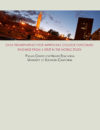
Data Transparency For Improving College Outcomes: Findings From A First In The World Study
Samantha Bernstein-Sierra, Zoë Corwin (2018)
This document gives a brief background on the Pullias Center’s FITW study, introduces the data challenges they encountered during the study, and presents four possible causes of these challenges based on interview and survey data.
Categories: Digital Equity, College Access
college access data digital equity technology
Download 774.70 KB 16909 Downloads
